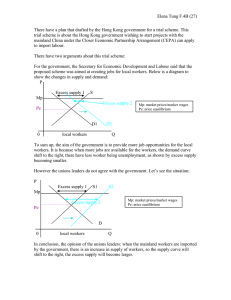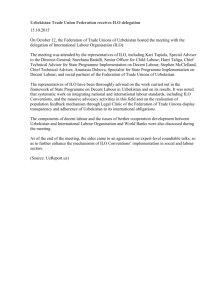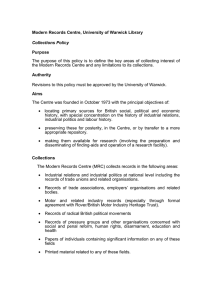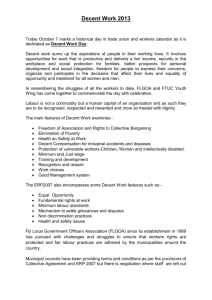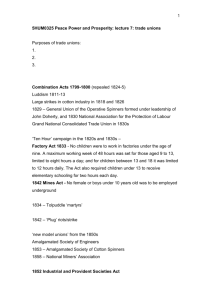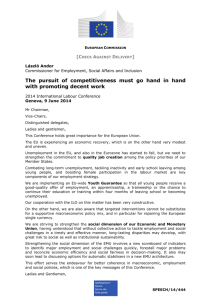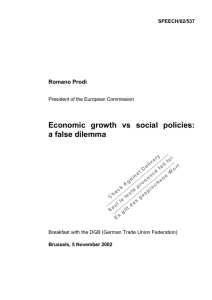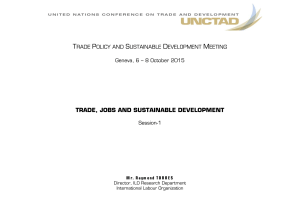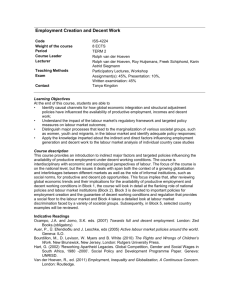Letter to Ms Sandra Polaski deputy director general of ILO
advertisement
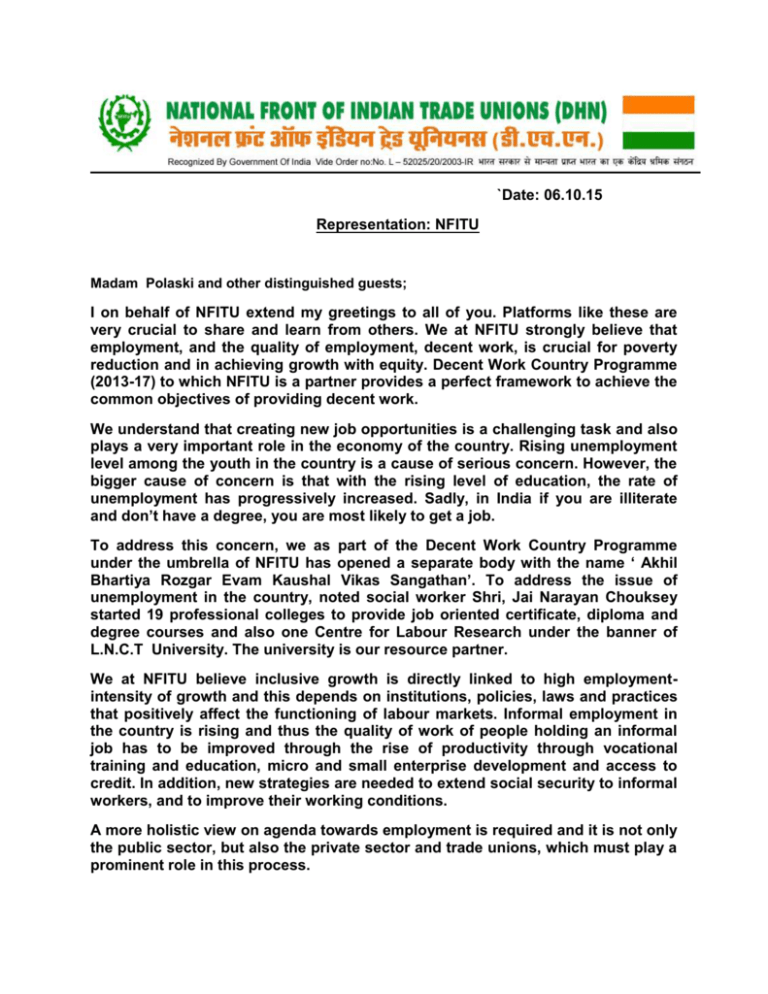
`Date: 06.10.15 Representation: NFITU Madam Polaski and other distinguished guests; I on behalf of NFITU extend my greetings to all of you. Platforms like these are very crucial to share and learn from others. We at NFITU strongly believe that employment, and the quality of employment, decent work, is crucial for poverty reduction and in achieving growth with equity. Decent Work Country Programme (2013-17) to which NFITU is a partner provides a perfect framework to achieve the common objectives of providing decent work. We understand that creating new job opportunities is a challenging task and also plays a very important role in the economy of the country. Rising unemployment level among the youth in the country is a cause of serious concern. However, the bigger cause of concern is that with the rising level of education, the rate of unemployment has progressively increased. Sadly, in India if you are illiterate and don’t have a degree, you are most likely to get a job. To address this concern, we as part of the Decent Work Country Programme under the umbrella of NFITU has opened a separate body with the name ‘ Akhil Bhartiya Rozgar Evam Kaushal Vikas Sangathan’. To address the issue of unemployment in the country, noted social worker Shri, Jai Narayan Chouksey started 19 professional colleges to provide job oriented certificate, diploma and degree courses and also one Centre for Labour Research under the banner of L.N.C.T University. The university is our resource partner. We at NFITU believe inclusive growth is directly linked to high employmentintensity of growth and this depends on institutions, policies, laws and practices that positively affect the functioning of labour markets. Informal employment in the country is rising and thus the quality of work of people holding an informal job has to be improved through the rise of productivity through vocational training and education, micro and small enterprise development and access to credit. In addition, new strategies are needed to extend social security to informal workers, and to improve their working conditions. A more holistic view on agenda towards employment is required and it is not only the public sector, but also the private sector and trade unions, which must play a prominent role in this process. The new government at the centre in the country is pushing through changes in labour-laws. We understand that law is important because it creates somewhat better space where the workers can fight and to ignore them is not a useful political stance. However, it is always good to carry along stake holders in any process of reform. Amendments to the labour laws do require consultations with the trade unions, and the government cannot bypass this process. ILO in the country has always played a crucial role in this regard. The kind of support ILO has provided to trade unions In lieu of the recent labour law reforms is note worthy. We sincerely appreciate the efforts it has made to hold consultations with unions and understanding their perspective on the reforms. We at NFITU strongly believe that collective bargaining is an important tool for raising living standards and improving working conditions. Unfortunately, it is under attack. There is a need to make workers enjoy the benefits of effective collective bargaining. We all present here make an endeavor to turn this into a reality which should be under the framework of workers’ rights which are guaranteed by law. Skill Development and Employment is the prime concern of DWCP (2013-17) which we have already started in the state of Madhya Pradesh , Chhattisghar, Bihar & Maharastra. Attached : Brochure of the same for your Kind information and Knowledge . Thank you! Yours Sincerely Dr.Deepak Jaiswal President NFITU Yours Sincerely J.N Ckhouksey Chancellor LNCT University India Sr. Vice President NFITU
